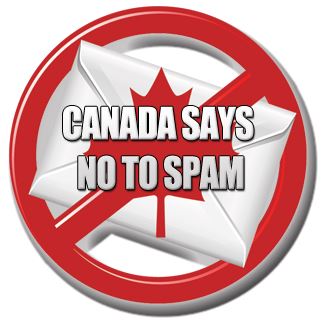The Canadian Anti-Spam Legislation (CASL) and your Small Business.
On July 1st 2014 a new anti-spam legislation will be rolled out in Canada that will affect all businesses that send commercial electronic messages or CEM’s. This wide sweeping new law should cut back on the amount of spam email, phishing schemes and the unwanted computer software attacking our business computers.
Unfortunately, it has also created a lot of confusion among small business owners as to what exactly needs to be done to prepare for CASL. At this time, before the law comes in into play, what we are recommending is a CASL compliance audit to review exactly what forms of electronic messages your business sends on a daily basis and establish what levels on consent you have with your existing clients or customers. Communications such as email, SMS text, and social media messages all need to comply with CASL.
Here is a short FAQ prepared from a recent presentation on CASL:
Canadian Anti-Spam Legislation FAQ
What is SPAM?
Spam can be defined as any electronic commercial message sent without the express consent of the recipient(s). Other online threats such as spyware, phishing and malware.
What is CASL?
Canada’s Anti-Spam Law (CASL) was drafted to keep unsolicited, unwanted electronic messages out of Canadians’ in-boxes while still permitting businesses, and consumers, to maintain mutually beneficial relationships (Deloitte). The Anti-Spam Act imposes significant restrictions on the sending of unsolicited commercial electronic messages or CEM’s. In effect: July 1st 2014
What is a commercial electronic message or CEM?
A commercial electronic message is any electronic message that encourages participation in a commercial activity, regardless of whether there is an expectation of profit.
Email, SMS Texts, instant messages and social network messages (Tweets, Facebook Posts) are all electronic messages.
What is exempt from CEM?
Even if a message is a CEM, you will not need consent to:
– Send a quotation upon request
– Complete a transaction
– Provide warranty, recall or safety information
In all of these cases you must still include the prescribed information & an unsubscribe mechanism.
What is Consent?
After July 1st, 2014: You can’t send a CEM without consent from the recipient.
Express Consent
Express, meaning someone actively gave you permission to send them a CEM.
Can be in the form of:
– Sign‐up on a website
– Response to a contest or coupon offer
– Sign‐up at point of sale
– Sign‐up over the phone
Implied Consent
Implied, meaning it would be reasonable to conclude you have someone’s permission to send them a CEM based on prior relationships.
A Family relationship
A personal relationship
A business or non-business relationship
Why am I telling you this now?
Once CASL comes into force (July 1st, 2014), you can’t send an electronic message requesting consent because it will be considered a CEM.
Make sure you keep records. The onus is on you. Are you prepared to comply before CASL comes into effect?
For additional information here are some sources that we have reviewed to educate ourselves on the new law:
Government of Canada – Canada’s Anti-Spam Legislation
What Canada’s new anti-spam law means to you – Deloitte
CASL: What you need to know about Canada’s new Anti-Spam Legislation – Retail Council of Canada
C360




